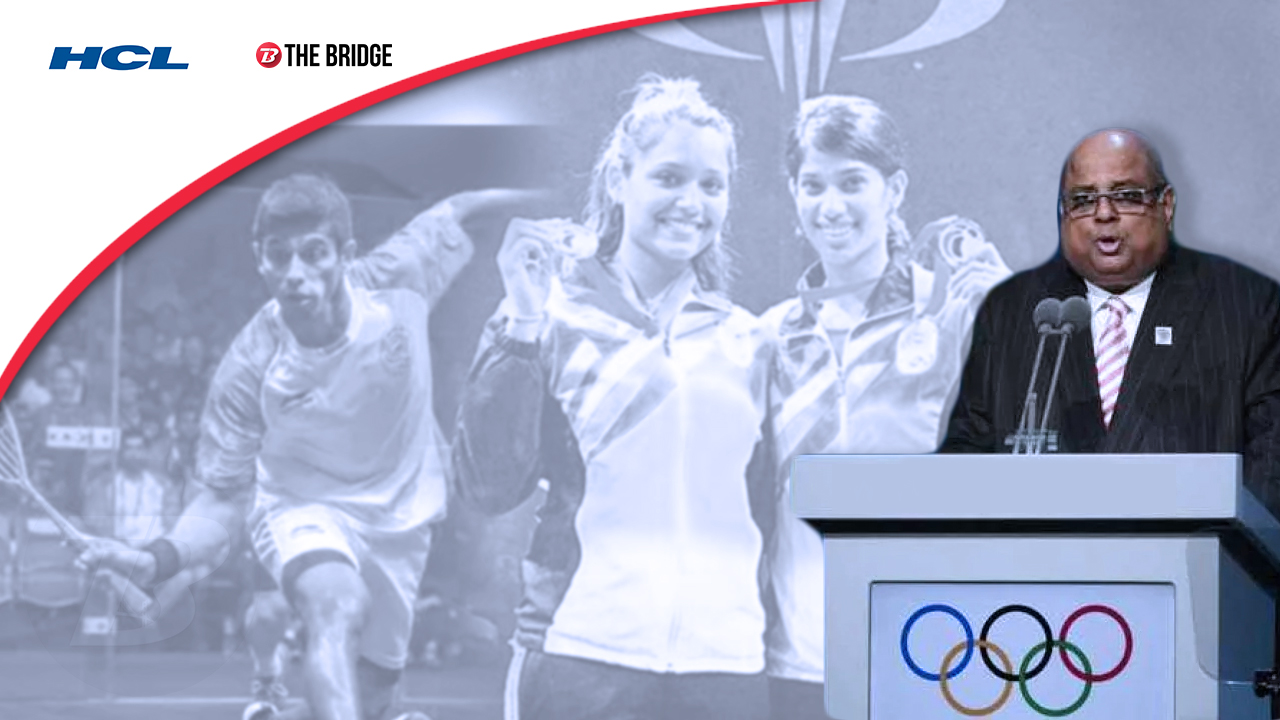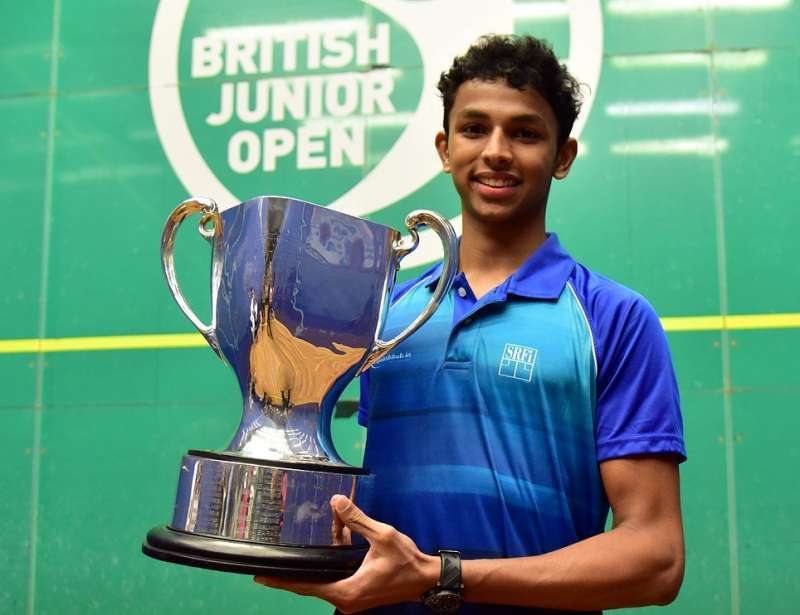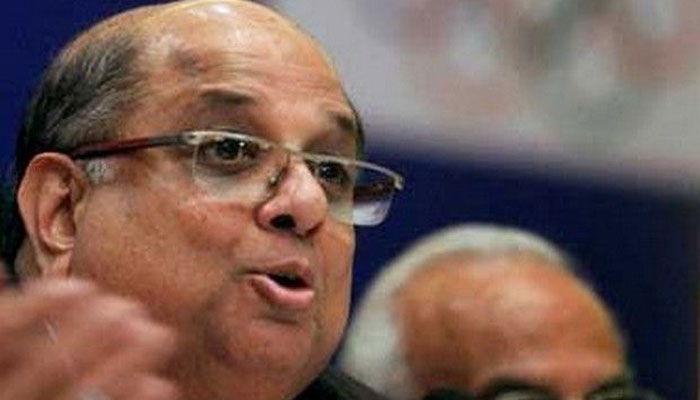Begin typing your search above and press return to search.
Featured
India - A slowly developing destination for Squash?

The rise of squash in India Over the years India is fast growing as a destination for squash with three major age-group tournaments hosted in a short space of time. The Tamil Nadu Squash Rackets Association under the aegis of the Squash Rackets Federation of India, organized and hosted the recently concluded Asian Junior Individual Squash Championship. This is the fifth time that India hosted this premier junior event. When it comes to infrastructure and logistics, India has sure set a benchmark in the world of Squash. Many players have emerged through time- the ten-time National champion R.K. Narpat Singh, Anil Nayyar, Major Raj Manchanda, Meherwan Daruwala, Adrian Ezra, and Ritwik Bhattacharya and now Saurav Ghosal, are some of them. S.D. Bilimoria in 1945 was prominent among the ladies, with the most significant being 16-time National champion Bhuvneshwari Kumari. Others names include Misha Grewal, Mekhala Subedar. Joshna Chinappa, however, was the first Indian to win the British Squash Championship title in 2003 in the under 19 category in 2003 and 2005. Dipika Pallikal Karthik was the first Indian junior to win the Asian U-15 title when the category was introduced in 2006. Ravi Dixit emerged the first male from India to win the U-19 title in 2010 in Colombo. In 2011, India had another girls' victor in Anaka Alankamony (U-19) in 2011 and 2012. 2012 also saw Kush Kumar emerge as U-17 winner. Veer Chotrani was India's next winner in the U-13 section in 2014 and the year 2016 saw Velavan Senthilkumar become India's second male player to win the U-19 title.  Velavan Senthilkumar With Indian players making an impact in the championship on a regular note, junior squash has also been yielding a lot of medals recently- Yash Fadte winning the Junior US Open, Aditya Raghwan's runner up finish in US Open (U19) and Neel Joshi's second place finish at the British Junior Open. But one can’t deny the slack of medals in the recent Asian championship with the only significant win being Yuvraj Wadhwani in the U13 against Pakistan’s Anas Ali Shah.
Velavan Senthilkumar With Indian players making an impact in the championship on a regular note, junior squash has also been yielding a lot of medals recently- Yash Fadte winning the Junior US Open, Aditya Raghwan's runner up finish in US Open (U19) and Neel Joshi's second place finish at the British Junior Open. But one can’t deny the slack of medals in the recent Asian championship with the only significant win being Yuvraj Wadhwani in the U13 against Pakistan’s Anas Ali Shah.
Also read: Choosing squash for ‘fun’, Yuvraj Wadhwani is already bringing laurels at 12
So is India finally being readied to take over from the current crop of Squash players? Do we have a good bench strength in the juniors? “The answer is yes and no”, says N. Ramachandran, patron of Squash Rackets Federation of India (SRFI) and ex-president of the World Squash Federation. Squash is a very difficult sport and the average life span of a player is 10 years. With the next set of tournaments coming up 4 years down the line, will the same set of players be able to bag the same results remains a question. “We have been identifying talent and training them but once they make a mark, the junior players get lured to go abroad”, he says, referring to the case of Kush Kumar who chose a Trinity scholarship from the US. The US offers a full scholarship with boarding and lodging along with strong coaching at the University Squash League and are always on the lookout for good players to join them. The major challenge for the ISA has been to retain the junior players. India has been lucky in terms of senior players but they have a limited career span and hence a good set of loyal players is the need of the hour when it comes to the juniors, with the final aim being able to produce a world champion from among them. The other challenge has been the dearth of good coaches. “We need younger coaches who are more committed because squash being a hard sport eventually takes a toll on older coaches,” says Ramachandran. Today, thanks to efforts of SRFI, the reach of squash has been equally spread in the country and with talent acquired from all parts of India, the competition to perform better has also upped a few notches. The coaches have to ensure that their players are better than the others in the country. It also helps that a lot of support has poured in from the private sector with a major name like HCL being associated with the National Federation. In addition to partnering with the SRFI during the National Championships, HCL also hosts an International Junior Championship which has been going on for three editions now. N. Ramachandran What makes countries like Egypt the powerhouse of Squash? Does squash not being a part of the Olympics hamper the efforts at betterment? “Funding is the main constraint here. Where Eqypt and Malaysia spend millions of dollars on squash a year, here we are managing with 2.5 to 3 crores”, feels Cyrus Poncha, national coach. “They start coaching young talent from as early as 4 years. But India lacks multiple public facilities like the ISA. Making squash facility available at a school level makes it more accessible and also creates an awareness of the sport”. Also, squash is not an Olympic sport and this is where there is a dichotomy. “Inclusion at Oylmpic level will definitely have its advantages but that is not the only factor,” feels Cyrus. “Government also needs to change their outlook,” feels Ramachandran. If the Federation has been transparent and has been yielding results then the NSDA and the Government should support its efforts and increase the funding. A non-interfering nature from the government and trustworthiness in the Federation is a pre-requisite for it to give its best. “You cannot have a system in which a few associations are immune to the vagaries of non performance,” says Ramachandran.
N. Ramachandran What makes countries like Egypt the powerhouse of Squash? Does squash not being a part of the Olympics hamper the efforts at betterment? “Funding is the main constraint here. Where Eqypt and Malaysia spend millions of dollars on squash a year, here we are managing with 2.5 to 3 crores”, feels Cyrus Poncha, national coach. “They start coaching young talent from as early as 4 years. But India lacks multiple public facilities like the ISA. Making squash facility available at a school level makes it more accessible and also creates an awareness of the sport”. Also, squash is not an Olympic sport and this is where there is a dichotomy. “Inclusion at Oylmpic level will definitely have its advantages but that is not the only factor,” feels Cyrus. “Government also needs to change their outlook,” feels Ramachandran. If the Federation has been transparent and has been yielding results then the NSDA and the Government should support its efforts and increase the funding. A non-interfering nature from the government and trustworthiness in the Federation is a pre-requisite for it to give its best. “You cannot have a system in which a few associations are immune to the vagaries of non performance,” says Ramachandran.
Also read: The inception and inspiration of the Indian Squash Academy
Sports ministry had brought in a good system where if a sport won medals it got in the A class and received the deserved funding. But with political play and change in governments, it went back to the old system. “You must have a large set of players. We cannot depend on one Joshna or one Dipika or one Ghosal. For that we need money which the government is reluctant to give to certain sports, but spends more in sports like football where we don’t even get good results.” Players need the federation and it also needs the players. It’s a two way street. “We have to start young,” he feels. Squash should be made available at the school level. This will help us train and identify talent at the grass root level. Media support and telecast of matches on mainstream channels will help the sport to grow and also receive good funding from sponsors and corporate. The Federation has been regularly web streaming its matches and also plan to come up with a Squash TV. Is a squash sporting league the answer to garner popularity and funding? “Leagues may make a lot of money but then there is a lot of compromise when it comes to the quality of the matches and its principles. Once privatization sets in, sponsors start dictating terms and conditions and the essence of the sport is lost,” feels Ramachandran. India may have been a destination of squash in the recent years but to sustain itself as the same in the long run, it needs to churn out regular talent who can put India on the global map and nail its position there in the form of a world champion. At the same time it needs to address and work on a variety of concerns and issues that hamper the growth of the sport. Till that is not achieved, this may just be a passing fad.
 Velavan Senthilkumar With Indian players making an impact in the championship on a regular note, junior squash has also been yielding a lot of medals recently- Yash Fadte winning the Junior US Open, Aditya Raghwan's runner up finish in US Open (U19) and Neel Joshi's second place finish at the British Junior Open. But one can’t deny the slack of medals in the recent Asian championship with the only significant win being Yuvraj Wadhwani in the U13 against Pakistan’s Anas Ali Shah.
Velavan Senthilkumar With Indian players making an impact in the championship on a regular note, junior squash has also been yielding a lot of medals recently- Yash Fadte winning the Junior US Open, Aditya Raghwan's runner up finish in US Open (U19) and Neel Joshi's second place finish at the British Junior Open. But one can’t deny the slack of medals in the recent Asian championship with the only significant win being Yuvraj Wadhwani in the U13 against Pakistan’s Anas Ali Shah. Also read: Choosing squash for ‘fun’, Yuvraj Wadhwani is already bringing laurels at 12
So is India finally being readied to take over from the current crop of Squash players? Do we have a good bench strength in the juniors? “The answer is yes and no”, says N. Ramachandran, patron of Squash Rackets Federation of India (SRFI) and ex-president of the World Squash Federation. Squash is a very difficult sport and the average life span of a player is 10 years. With the next set of tournaments coming up 4 years down the line, will the same set of players be able to bag the same results remains a question. “We have been identifying talent and training them but once they make a mark, the junior players get lured to go abroad”, he says, referring to the case of Kush Kumar who chose a Trinity scholarship from the US. The US offers a full scholarship with boarding and lodging along with strong coaching at the University Squash League and are always on the lookout for good players to join them. The major challenge for the ISA has been to retain the junior players. India has been lucky in terms of senior players but they have a limited career span and hence a good set of loyal players is the need of the hour when it comes to the juniors, with the final aim being able to produce a world champion from among them. The other challenge has been the dearth of good coaches. “We need younger coaches who are more committed because squash being a hard sport eventually takes a toll on older coaches,” says Ramachandran. Today, thanks to efforts of SRFI, the reach of squash has been equally spread in the country and with talent acquired from all parts of India, the competition to perform better has also upped a few notches. The coaches have to ensure that their players are better than the others in the country. It also helps that a lot of support has poured in from the private sector with a major name like HCL being associated with the National Federation. In addition to partnering with the SRFI during the National Championships, HCL also hosts an International Junior Championship which has been going on for three editions now.
 N. Ramachandran What makes countries like Egypt the powerhouse of Squash? Does squash not being a part of the Olympics hamper the efforts at betterment? “Funding is the main constraint here. Where Eqypt and Malaysia spend millions of dollars on squash a year, here we are managing with 2.5 to 3 crores”, feels Cyrus Poncha, national coach. “They start coaching young talent from as early as 4 years. But India lacks multiple public facilities like the ISA. Making squash facility available at a school level makes it more accessible and also creates an awareness of the sport”. Also, squash is not an Olympic sport and this is where there is a dichotomy. “Inclusion at Oylmpic level will definitely have its advantages but that is not the only factor,” feels Cyrus. “Government also needs to change their outlook,” feels Ramachandran. If the Federation has been transparent and has been yielding results then the NSDA and the Government should support its efforts and increase the funding. A non-interfering nature from the government and trustworthiness in the Federation is a pre-requisite for it to give its best. “You cannot have a system in which a few associations are immune to the vagaries of non performance,” says Ramachandran.
N. Ramachandran What makes countries like Egypt the powerhouse of Squash? Does squash not being a part of the Olympics hamper the efforts at betterment? “Funding is the main constraint here. Where Eqypt and Malaysia spend millions of dollars on squash a year, here we are managing with 2.5 to 3 crores”, feels Cyrus Poncha, national coach. “They start coaching young talent from as early as 4 years. But India lacks multiple public facilities like the ISA. Making squash facility available at a school level makes it more accessible and also creates an awareness of the sport”. Also, squash is not an Olympic sport and this is where there is a dichotomy. “Inclusion at Oylmpic level will definitely have its advantages but that is not the only factor,” feels Cyrus. “Government also needs to change their outlook,” feels Ramachandran. If the Federation has been transparent and has been yielding results then the NSDA and the Government should support its efforts and increase the funding. A non-interfering nature from the government and trustworthiness in the Federation is a pre-requisite for it to give its best. “You cannot have a system in which a few associations are immune to the vagaries of non performance,” says Ramachandran. Also read: The inception and inspiration of the Indian Squash Academy
Sports ministry had brought in a good system where if a sport won medals it got in the A class and received the deserved funding. But with political play and change in governments, it went back to the old system. “You must have a large set of players. We cannot depend on one Joshna or one Dipika or one Ghosal. For that we need money which the government is reluctant to give to certain sports, but spends more in sports like football where we don’t even get good results.” Players need the federation and it also needs the players. It’s a two way street. “We have to start young,” he feels. Squash should be made available at the school level. This will help us train and identify talent at the grass root level. Media support and telecast of matches on mainstream channels will help the sport to grow and also receive good funding from sponsors and corporate. The Federation has been regularly web streaming its matches and also plan to come up with a Squash TV. Is a squash sporting league the answer to garner popularity and funding? “Leagues may make a lot of money but then there is a lot of compromise when it comes to the quality of the matches and its principles. Once privatization sets in, sponsors start dictating terms and conditions and the essence of the sport is lost,” feels Ramachandran. India may have been a destination of squash in the recent years but to sustain itself as the same in the long run, it needs to churn out regular talent who can put India on the global map and nail its position there in the form of a world champion. At the same time it needs to address and work on a variety of concerns and issues that hamper the growth of the sport. Till that is not achieved, this may just be a passing fad.
Next Story






